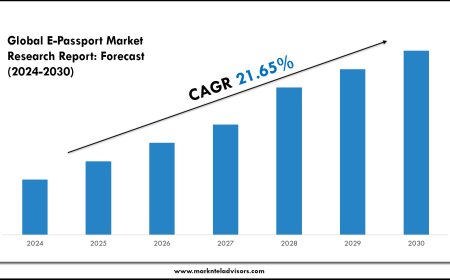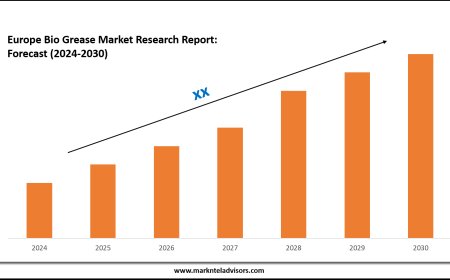How to Become a Data Analyst: Skills, Tools & Career Path Explained
Introduction
Data analyst is one of the most sought-out jobs in our present digital era. With firms both large and small functioning on data to enforce decision-making processes, there has been an increasingly enormous demand for those professionals who can manipulate, interpret, and visualize data. But what is the work of a data analyst? How then will one join the field with no prior backgrounds?
This article aims at helping novices about what they should know to become a data analyst including the skills required, the learning journey, the challenges typical of newcomers, and how to become a data analyst.
What Does a Data Analyst Do?
In essence, the role of a data analyst is to gather, clean, analyze and visualize data in a manner that can assist companies to make the right decisions. Data analysts transform bare figures into operational guidelines whether it comes to discovering sales patterns, knowing more about the customers, or enhancing the activities within the company.
An example here is a retail company that can depend on a data analyst to analyze historical sales and make predictions of the products that will sell well in the next season. Analysts could follow patient results in healthcare and enhance treatment schemes.
Why This Role Matters
We have data all around us, but fact is not everybody knows how to use it intelligently. In the absence of qualified analysts, businesses can run the risk of making guesswork decisions instead of evidence based ones. That is why the skill of data analysis is valued in practically any industry, whether in a matter of finance, marketing, logistics, or education.
What You Need To Know To Succeed
You do not require to be a math genius to make it as a data analyst but having some fundamentals on some of the major areas will ease your path.
1. Statistical and Mathematical Influencing
It requires some knowledge of statistics. The concepts such as averages, correlation, regression, and probability are some of the tools that you will apply frequently so as to interpret data.
Characteristic challenge: The field will have many potential entrants who would prefer to avoid it due to their fear of math.
Recommendation: Take an introductory statistics course or tutorial on the internet. Most materials adopt real life examples which make learning commonsensical.
2. Critical Thinking
Other than the amount, data analysis is all about how to ask the right questions. What message is the data giving us? Does it have a pattern or an anomaly?
Real-life illustration: An apparel brand can suddenly realize that its online sales have declined. A data analyst may peel the data and realize that the problem was triggered by a recent update in the website, a fact that cannot be seen at face value.
3. Communication Skills
Information is of no use unless others can know about them. Analysts must be able to paint the picture of their findings using words and sometimes graphs, dashboards and reports.
Antithesis: One may even think that the only thing that counts is technical skills. Nevertheless, soft skills, such as the ability to tell stories and communicate are also essential.
Educational Trajectory: Do You Have to Have a Degree?
It is a typical question. Although most employers would like their employees to have a degree in a program such as mathematics, economics or computer science, there is no tough rule across all hiring grounds.
Alternative Routes:
-
Online certifications
-
Bootcamps and workshops
-
Authentication through self-study and individual projects
Real life example: Most successful data analysts have unconventional backgrounds such as teachers, marketers and even musicians who acquired the skills and had enough portfolios to demonstrate what they could do.
Educational Trajectory: Do You Have to Have a Degree?
It is a typical question. Although most employers would like their employees to have a degree in a program such as mathematics, economics or computer science, there is no tough rule across all hiring grounds.
Alternative Routes:
-
Online certifications
-
Bootcamps and workshops
-
Authentication through self-study and individual projects
Real life example: Most successful data analysts have unconventional backgrounds such as teachers, marketers and even musicians who acquired the skills and had enough portfolios to demonstrate what they could do.
Career Path and Growth Opportunities
The position of a data analyst usually leads to another data-related profession. As time and experience goes by, most of the analysts shift into roles of being:
Data Senior Analyst
-
Data Engineer
-
Business Analyst
-
Data Scientist
-
Product Analyst
With every step, responsibility increases as well as the sophistication of data work, and in many cases compensation goes up.
Common Challenges and How to Overcome Them
1. Overwhelmed by Learning Resources
With so much information available, beginners often feel unsure where to start.
Tip: Focus on one topic at a time. Start with basic statistics, then learn spreadsheet tools, and gradually move to databases and visualization.
2. Fear of Not Being Technical Enough
You dont need to know everything from the start. Many skills are learned on the job or as projects demand.
Tip: Think of learning as a process. Every analyst once started where you are now.
3. Imposter Syndrome
Its common to feel like youre not good enough, especially when comparing yourself to experts.
Tip: Track your progress. Celebrate small wins like completing a project or solving a problem.
Final Thoughts
Profession as a data analyst is a path to research, educate and persevere. The field is stable, grows, and has a prospect to find the solutions to real life problems based on logic and evidence. In case of a transition into another profession(or even first time) keep in mind that you are not the only one who is a good expert, but was once an amateur.
Step by step development of your skills, conventional training, and the ability to keep in touch with real problems will help you become a confident and competent data analyst..



































